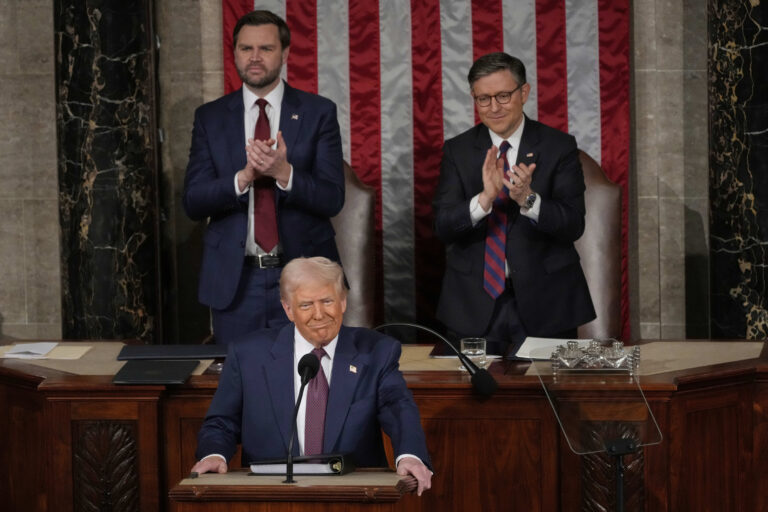 U.S. Senator Charles E. Schumer today called on the Federal Trade Commission (FTC) to crackdown on retailers who are charging customers hidden extra fees when they return products purchased online. Restocking fees are the fees retailers charge to customers in order to accept returned merchandise. Though New York and five other states require retail stores to post notice at registers that fees will be assessed for returned purchases, there are currently no requirements for disclosing restocking fees for online purchases. As millions of Americans make purchases online this holiday season, Schumer said that closing this loophole was crucial to making sure customers were fully informed about these extra hidden fees, and he called on the FTC to require websites to prominently disclose restocking fees at the point of purchase.
U.S. Senator Charles E. Schumer today called on the Federal Trade Commission (FTC) to crackdown on retailers who are charging customers hidden extra fees when they return products purchased online. Restocking fees are the fees retailers charge to customers in order to accept returned merchandise. Though New York and five other states require retail stores to post notice at registers that fees will be assessed for returned purchases, there are currently no requirements for disclosing restocking fees for online purchases. As millions of Americans make purchases online this holiday season, Schumer said that closing this loophole was crucial to making sure customers were fully informed about these extra hidden fees, and he called on the FTC to require websites to prominently disclose restocking fees at the point of purchase.
“Americans are doing a significant amount of their holiday shopping online and it is important they be made aware of hidden fees and charges,” Schumer said. “While more and more retailers are starting to charge restocking fees, the disclosure of these fees has hardly kept pace. Customers have a right to know that when they make a purchase they could be held responsible for up to 25% of the original cost of the product if they choose to return it. Having that knowledge up front will allow customers to decide whether they want to do business with an online retailer who requires the fees or an online retailer who doesn’t.”
Restocking fees have increased in prevalence in the last several years, as retailers claim that technicians must examine products after they are returned before they can resell them. These restocking fees can range anywhere from 10% all the way to 25% at many of the country’s major retailers. For example, Apple charges 10% to restock, Best Buy restocking fees range from 10% to 25% for certain electronic products, and Target, Amazon, Sears and Dell all charge 15%.
To ensure customers are fully aware of these extra fees, several states across the country – including New York, Arizona, Pennsylvania, New Jersey and California – have laws on the books requiring prominent disclosure of restocking fees at stores. New York’s law, passed in 2009, requires retailers to inform customers of any restocking fees before purchases are finalized. Retailers must either attach a notice of restocking fees to the item itself, to the cash register or a sign near it, or at the entrance to the store. Under New York State law, stores that fail to inform customers of restocking fees must refund the full amount of the fee to customers.
While several states have laws requiring disclosure at traditional brick and mortar retailers, unfortunately, no such requirements exists for online shoppers. Requiring disclosure of restocking fees for online retailers would provide customers an opportunity, before making their purchase, to seek out a retailer who doesn’t require the fee.
In his letter to the FTC, Schumer called on the agency to determine whether lack of disclosure of restocking fees for online purchases was a deceptive trade practice and to immediately require retailers to post the notice online at the point of purchase. Schumer offered to assist in passing legislation to give the FTC the authority to regulate the practice, if it the agency determines it currently does not have the authority to do so.
“When you click that mouse to finalize your purchase, there should be no surprise that you might have to pay more to return the product than you did to buy it in the first place,” continued Schumer.
A copy of Senator Schumer’s letter is below.
Dear Chairman Leibowitz,
This busy holiday season has brought welcome reports of vibrant retail sales, with particular growth in the online market. While the revitalization of the American retail industry is exciting news, the increased growth in online sales requires heightened sensitivity to the new ways consumers may be put at risk.
Specifically, I write today to express a concern and request an investigation into what appears to be a common practice of online retailers – the failure to clearly disclose restocking fees before a consumer makes a purchase. Restocking fees – the fees stores charge to accept returns – may help retailers to cover the cost of repackaging and shelving returned goods. However, consumers deserve to know if these charges will apply prior to a purchase.
The State of New York passed a law in 2009 that requires retailers to disclose any applicable restocking fees before purchase. This disclosure must be on a sign clearly visible to the buyer or attached to the item itself. NY Gen. Bus. Law § 218-a. This important legislation helps protect shoppers in New York’s brick-and-mortar stores from being gouged by hidden fees when they attempt to return an item. Online shoppers deserve – and are currently denied – the same protections, especially because more and more consumer activity is conducted over the internet.
I urge you to investigate whether the failure to disclose restocking fees online could constitute a deceptive trade practice, and to take swift action to crack down on it. In addition, I urge you to require all online retailers to display in clear and visible terms, any restocking fees that might apply. If you should need additional authority to promulgate appropriate regulations in this field, please don’t hesitate to let me know.
The FTC has long been at the forefront of protecting consumers from the actions of those who would take advantage of them, and I applaud your efforts in this area and thank you for your continued diligence.
If you have any questions, please do not hesitate to contact my office.
(YWN Desk – NYC)










